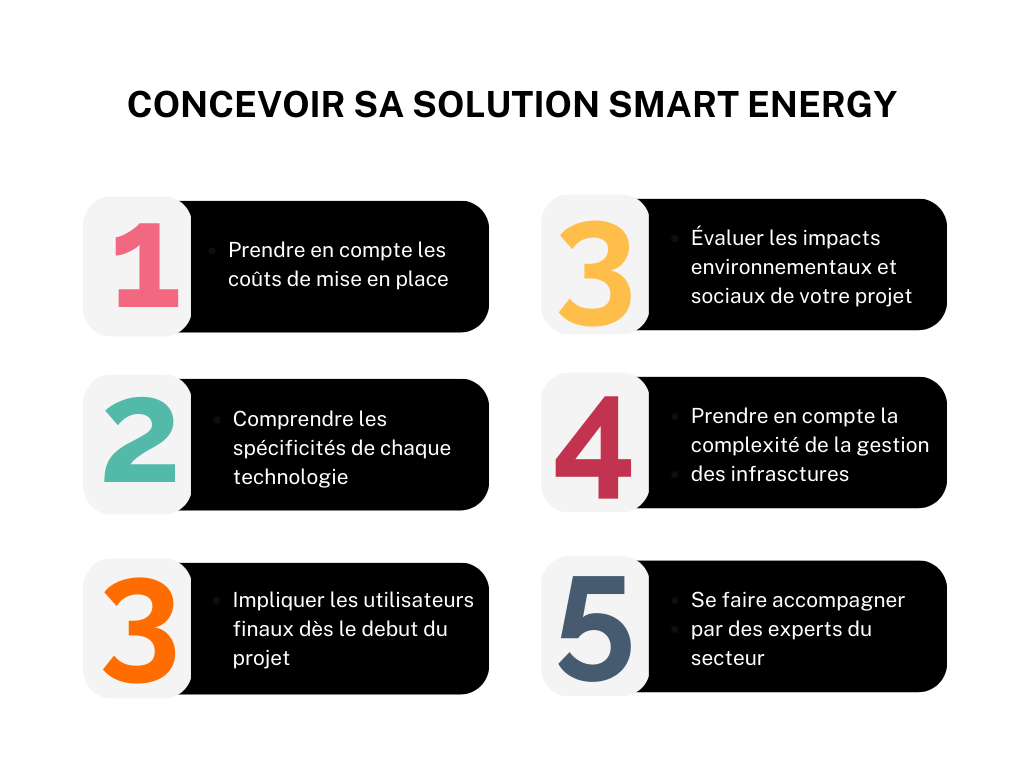Current Technologies
Current technologies play a crucial role in the effective management of energy. Notable advancements include renewable energy sources such as wind, solar, and biomass, which are expanding rapidly, offering sustainable and efficient solutions. These technologies continue to improve, making installations increasingly efficient.
Next-generation solar panels, for example, incorporate high-efficiency photovoltaic cells, significantly increasing energy production while reducing costs. Meanwhile, modern wind turbines are designed to operate even in low wind conditions, thereby maximizing their energy yield.
Energy storage is also a rapidly evolving field. Next-generation lithium-ion batteries offer increased storage capacity and extended lifespan, essential for stabilizing the supply of renewable energy. Furthermore, stationary storage technologies like redox flow batteries and flywheels provide innovative solutions to meet the varied needs of the market.
Green buildings also benefit from these cutting-edge technologies. Integrated energy management systems allow for the optimization of energy consumption, using resources more responsibly, and achieving significant savings. These systems include smart sensors, monitoring software, and advanced algorithms that analyze data in real-time to improve overall efficiency.
In the field of sustainable mobility, innovations abound as well. Electric and hybrid vehicles are becoming more autonomous thanks to improved batteries and expanding fast-charging infrastructure. Fleet management technologies optimize travel, thereby reducing carbon footprints.
In summary, current technologies offer diverse and scalable solutions to enhance energy management. They not only reduce carbon footprints but also optimize the efficiency of installations and promote the responsible use of energy.
Solar Energy
Technological advancements in the energy sector are numerous and aim to improve the efficiency and sustainability of energy systems. Among these, innovations in smart grids and energy management play a crucial role in enabling better integration of renewable energy sources.
Storage batteries are also evolving with increased capacities and efficiencies, facilitating the adoption of large-scale storage solutions. On the other hand, microgrid technologies are gaining popularity, offering decentralized and resilient energy production solutions.
In the field of solar energy, the progress is remarkable. Photovoltaic panels are becoming more efficient and accessible, making solar energy increasingly competitive. Additionally, innovations such as bifacial panels that capture light on both sides increase energy yields.
The tracking technologies that optimize the orientation of panels based on the sun’s position help maximize energy production throughout the day. This, combined with the use of high-efficiency materials, contributes to making solar installations more effective.
Among emerging technologies, perovskite solar cells promise to revolutionize the sector due to their reduced production cost and high efficiency. These cells could very well become the next generation of benchmark photovoltaic solutions.
Wind Turbines
The advancements in energy management are astonishing. With increasingly pressing environmental challenges, technological innovation becomes crucial for improving the efficiency and sustainability of current energy systems. Whether it is production, management, or energy storage, technologies are rapidly evolving to meet contemporary needs.
Solar Technologies
Modern photovoltaic panels offer significantly greater efficiency compared to older models. Next-generation solar cells, utilizing materials like perovskite, allow not only for better conversion of solar energy into electricity but also reduce production costs. Control systems for solar installations now integrate AI to optimize output in real time.
Wind Turbines
Wind turbines represent a significant share of the renewable energy mix. Today, larger and more efficient turbines maximize energy production even in moderate wind conditions. The design of the blades has also evolved, reducing their environmental impact and increasing their efficiency. Advanced storage technologies allow for optimal management of the intermittency of this energy source.
Energy Storage
The effective management of renewable energy heavily depends on storage. Lithium-ion batteries, though popular, are being gradually complemented by innovative technologies like metal-sodium batteries or flywheels. These solutions provide better storage capacity and extended lifespan while reducing environmental footprints. Energy Management Systems (EMS) utilize real-time data to optimize the utilization and storage of energy.
Sustainable Mobility
Electric vehicles (EVs) are at the heart of sustainable mobility. Advances in fast-charging technologies and dynamic charging station infrastructure make these vehicles more accessible and efficient. The integration of solutions like Vehicle-to-Grid (V2G) allows for synergy between the electric grid and EVs, promoting better energy balance.
Articles similaires
Thank you!
We will contact you soon.














